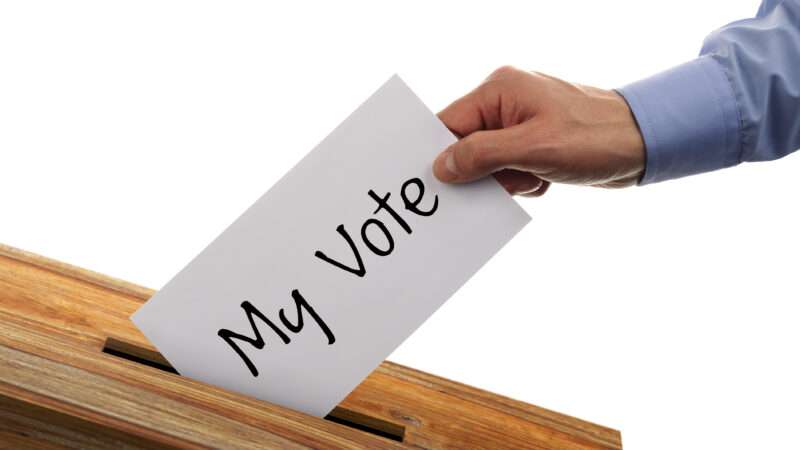
The Washington state legislature is considering a new mandatory voting proposal, S.B. 5209, that would compel registered voters to return ballots in each primary and general election. The proposal is "about behavior modification," Sen. Patty Kuderer (D–Bellevue) argued at a committee meeting on Tuesday, likening the government's role in promoting voting to that of a parent.
To its credit, the bill states that voters may return blank ballots and allows citizens to opt out of registering to vote at all. It establishes no punishment for non-compliance.
As written, S.B. 5209 is essentially unenforceable. It is nevertheless bad policy since it would deploy the state's authority, albeit impotently, to compel political speech.
S.B. 5209's lead sponsor, Sen. Sam Hunt (D–Olympia), tells Reason his bill wouldn't violate citizens' free speech rights. "People eligible to vote have the option of opting out by filing a form," with election officials, says Hunt. "They also have the option of sending in a blank ballot to meet their civic duty of casting a ballot. Nothing in the bill requires them to vote for a candidate of issue. It requires them to participate."
"Even with its contradictory language and lack of penalties, SB 5209 is unconstitutional," says Andy Craig, director of election policy at the Rainey Center and an adjunct scholar at the Cato Institute. "Under the First Amendment, you can't force people to vote, just like you can't force people to say the Pledge of Allegiance," he adds. "There's a long tradition of Americans abstaining from the polls for religious, philosophical, or political reasons, as is their right."
Washington's Republican legislators reportedly oppose the bill, due in part to the high likelihood that it won't hold up in court.
Some politicians may favor mandatory voting to remedy low voter turnout—like California's abysmal 42.2 percent turnout in the state's November 2014 general election—which is often driven by embarrassingly poor candidates. They may also assume that higher voter turnout will benefit their party, though there is "substantial, reliable data indicating that turnout, in the range seen in the United States for the past 70 years, has little to no systematic partisan effect," academics Daron R. Shaw and John R. Petrocik wrote in National Affairs.
Besides non-voting dissenters, many Americans are politically ignorant by choice. Proposals like S.B. 5209 would likely boost voter participation, but not necessarily pre-voting research or consideration. "When relatively ignorant voters go to the polls, they aren't doing the rest of society a favor," George Mason University law professor Ilya Somin wrote at The Volokh Conspiracy, which is hosted by Reason. "They are instead inflicting harm on us by making poor choices and incentivizing politicians to cater to their ignorance."
The First and 14th Amendments state that governments may not compel or disallow political speech. Decades of jurisprudence have bolstered these protections. Washington's state legislators ought to realize that soft coercion, with few consequences, is coercion nonetheless.
The post Washington State's Democrats Float a Proposal To Make Voting Mandatory appeared first on Reason.com.







